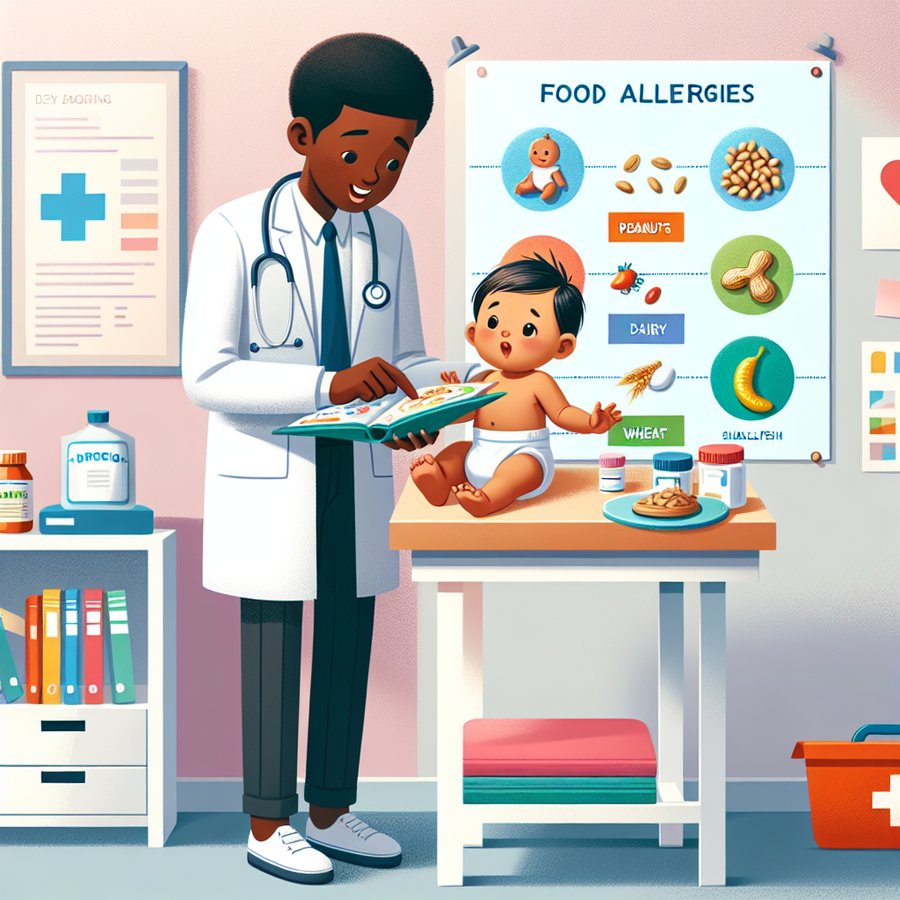Identifying and managing food allergies in 8-month-olds is an essential step in safeguarding their health and ensuring they receive the nutrition they need without adverse reactions. As infants begin to explore a variety of solid foods, parents and caregivers must stay vigilant for any signs of food allergies. This article delves into how to recognize allergic reactions, manage them effectively, and introduce new foods safely to your baby’s diet.
Recognizing Food Allergies in 8-Month-Olds
Food allergies manifest through various symptoms that can range from mild to severe. In 8-month-olds, common signs include hives, eczema, vomiting, diarrhea, or in more severe cases, anaphylaxis. The onset of these symptoms typically occurs shortly after the ingestion of the allergenic food.
It is crucial for parents to closely monitor their baby’s response to each new food introduced. Documenting the introduction of new foods can help identify the source of an allergic reaction if one occurs. For detailed guidance on introducing solid foods to babies with allergies, consider reading about how to introduce solid foods to a 6-month-old baby with allergies.
Identifying and Managing Food Allergies in 8-Month-Olds
When a food allergy is suspected in an 8-month-old, the first step is to eliminate the offending food from their diet and observe if symptoms improve. It is advisable to reintroduce the food under medical supervision to confirm the allergy. A pediatrician may recommend allergy testing to identify specific allergens.
Management of food allergies includes avoiding the allergenic food and being prepared to treat allergic reactions should they occur. Parents should educate themselves on the use of antihistamines and, in cases of severe allergies, how to use epinephrine auto-injectors. More information on managing allergies can be found in our comprehensive guide on identifying and managing food allergies in 8-month-olds.
Safe Introduction of New Foods
Introducing new foods to an 8-month-old should be done cautiously, one at a time, and in small amounts. This approach allows for the monitoring of any adverse reactions and makes it easier to identify the cause of a potential allergy. Foods known to be common allergens, such as peanuts, tree nuts, eggs, and dairy, should be introduced gradually and with careful observation.
In addition to monitoring for allergies, ensuring a balanced diet is vital for 8-month-olds. Incorporating a variety of foods from different food groups provides essential nutrients for growth and development. For information on nutritional needs and introducing solid foods, read our article on nutritional needs for premature babies and transitioning from breast milk to cow’s milk at 12 months.
For additional resources and guidance on managing food allergies and dietary planning for babies, explore our articles on dairy-free calcium sources for breastfeeding mothers, introducing solid foods to babies with a family history of allergies, and probiotics for babies: benefits and recommended types. By staying informed and cautious, parents can successfully navigate the challenges of identifying and managing food allergies in their 8-month-old babies, ensuring their safety and well-being.













